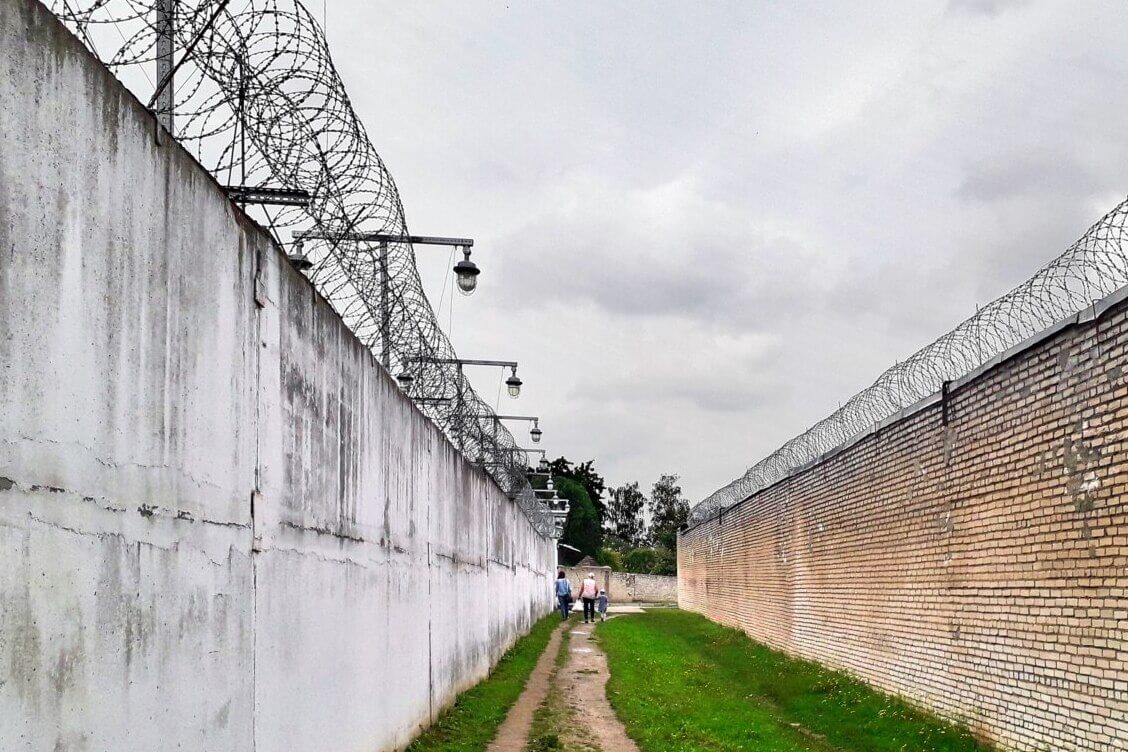Belarus’ political prisoners face torture, lack of medical care, isolation – report

December 29, Pozirk. The situation of political prisoners in Belarus remains consistently critical, the Viasna Human Rights Center said in a report.
They are held in terrible conditions without quality and timely medical care, are subjected to torture and beatings and often have no contact with the outside world.
Vadzim Chraśko, Ihar Lednik, Alaksandar Kulinič and Dmitriy Shletgauer died behind bars in 2024.
Currently there are 1,265 political prisoners, including 168 women. At least 224 prisoners are “at particular risk,” according to the report.
Over 100 political prisoners have serious health issues, 11 are disabled and 16 have mental disorders.
Forty-six political prisoners are over 60, and 29 are parents of many children.
The regime is holding behind bars 175 cultural figures, 45 media professionals, more than 30 IT specialists, 20 soldiers, 17 doctors, 10 priests and believers, seven lawyers and six human rights activists.
“Today’s political prisoners include at least 30 families. This is the maximum number of families behind bars in recent years. Brothers and sisters, fathers and children and spouses are in prison,” the report stressed.
At least nine people are being held incommunicado. They are: Siarhiej Cichanoŭski, Ihar Łosik, Viktar Babaryka, Maksim Znak, Mikałaj Statkievič, Mikałaj Bańkoŭ, Alaksandar Franckievič, Andrej Navicki and Uładzimir Kniha.
Maryja Kaleśnikava spent more than 600 days incommunicado until she was allowed to meet with her father in November 2024.
Since 2020, at least 95 political prisoners have been transferred from penal colonies to prisons, and new criminal cases have been opened against 66 detainees – on charges of malicious disobedience.

Belarusian strongman pardons 20 as political arrests continue
- Politics, SocietyBelarus' embassy in Japan to suspend consular servicesThe material is available only to POZIRK+
- PoliticsReprisals: audit executive awaiting trial over politicsThe material is available only to POZIRK+
- Politics, SocietyOpposition will not issue New Belarus Passports until legal issues are sorted outThe material is available only to POZIRK+
- Politics, SecurityLatvian defense minister urges citizens not to travel to Belarus, RussiaThe material is available only to POZIRK+
- Elections, PoliticsThree more presidents congratulate Łukašenka after supposed election winThe material is available only to POZIRK+
- PoliticsUN women's rights panel discusses Belarusian political prisonersThe material is available only to POZIRK+
- PoliticsProsecutors send blogger Biaspałaŭ's case to Supreme Court to determine jurisdictionThe material is available only to POZIRK+
- PoliticsMEPs welcome Šarenda-Panasiuk's release as important step to address rights abusesThe material is available only to POZIRK+
- PoliticsComedian Kamisaranka added to "terrorist" listThe material is available only to POZIRK+
- Politics, SportIIHF bans Belarus’ hockey team from 2025-26 competitionsThe material is available only to POZIRK+
- EconomyŁukašenka blames ministers for capital flight of hundreds of millionsThe material is available only to POZIRK+
- Economy, PoliticsLithuanian PM denounces Biełaruśkalij arbitration claim as pressureThe material is available only to POZIRK+
- Politics
- Economy
- Elections, Politics
- Politics
- PoliticsReprisals: scammers offer Łukašenka’s pardon for $5,000The material is available only to POZIRK+
- Politics, SocietySome 1,900 NGOs closed since 2020The material is available only to POZIRK+
- PoliticsBelarusian archer Kazłoŭskaja gets Polish citizenshipThe material is available only to POZIRK+
- Politics, Security, SocietyBelarusian volunteer fighter Zajcava to be buried in KyivThe material is available only to POZIRK+
- PoliticsTrump suspends foreign aid, EU steps up to support independent journalismThe material is available only to POZIRK+
- PoliticsCabinet resigns after election as required by ConstitutionThe material is available only to POZIRK+
- Economy
- Politics, SportIOC said to recognize Łukašenka's son as president of Belarusian NOCThe material is available only to POZIRK+
- PoliticsKGB declares Gronka crowdfunding platform extremist groupThe material is available only to POZIRK+
- Economy
- Economy
- Elections, PoliticsCEC declares Łukašenka winner in presidential electionThe material is available only to POZIRK+
- EconomyShare of employed young adults falling in Belarus since 2016The material is available only to POZIRK+
- SecurityArmy launches exercise focusing on drone warfareThe material is available only to POZIRK+